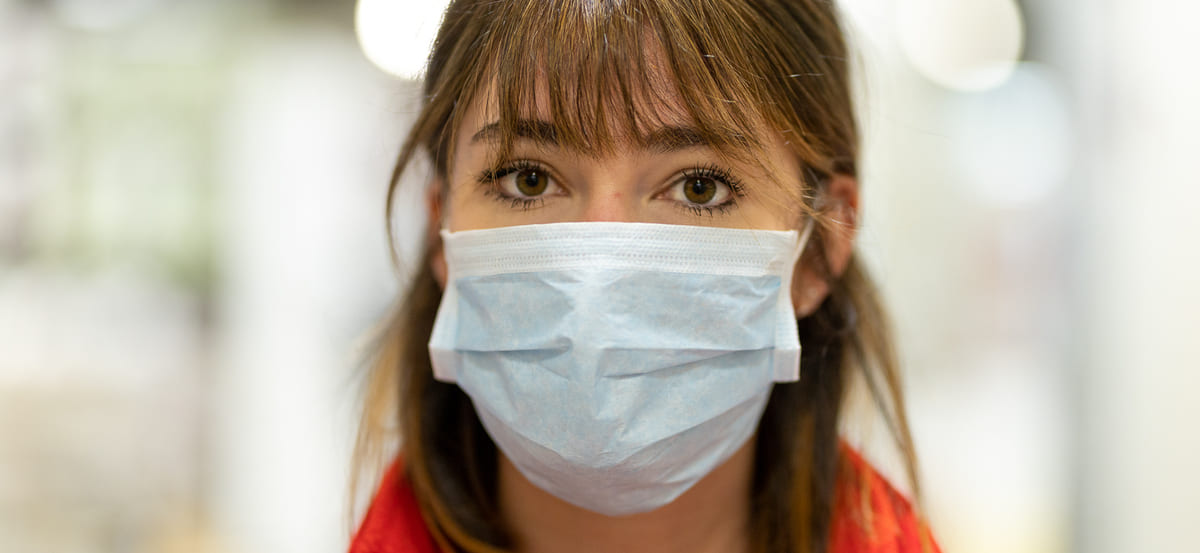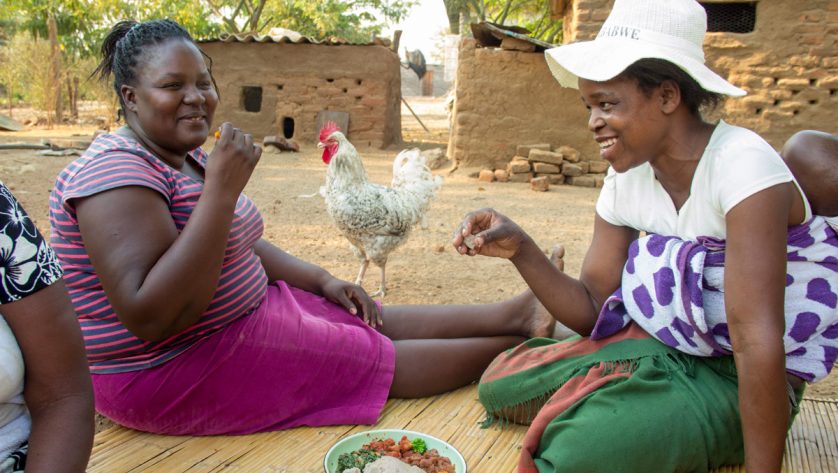COVID-19 poses challenges for everyone. But for people on the move, with little access to health care or adequate hygiene services, the disease is especially frightening. Juan Poyón, a volunteer from Guatemalan Red Cross, is helping migrants returning from Mexico and the United States. He says kindness toward those most at risk is critical to keeping everyone safe and COVID-free. “We take into account that they are highly vulnerable and at greater risk from COVID-19. We are delivering hygiene kits and providing prevention messages, like the importance of hand-washing and personal hygiene to prevent the spread of the virus”.
Ana Toyas is a teacher and a volunteer for Spanish Red Cross in Logoroño, Spain. Since the beginning of the pandemic, she has helped in many ways, especially delivering food and essential products to families left in high vulnerability due to the COVID-19 lockdown. Even though they visit around ten families during the day, they do not have the chance of meeting who is behind the door as a preventive measure. “We don’t know who is inside the house, or what is their situation. What we do know is that they are very grateful behind these doors”.
Taking care of our mental health during this COVID-19 pandemic is crucial. More and more, people are facing themselves feeling anxiety, stress or are concerned about the wellbeing of their loved ones. Stacy volunteers at the Emergency Operations Center (EOC) of Kenya Red Cross. Like her, many other volunteers are on the other end of the line to look after people’s mental health, even if they just want to have a conversation.
In the northern Italian city of Modena, Italian Red Cross volunteer Chiara Gorni works is at the forefront of the fight against Covid-19. But you won’t only see her in an ambulance or in a hospital. Like most people in northern Italy, Gorni is in lockdown. So she works from her home, near the epicenter of Italy’s Covid-19 crisis. She is one of 30 online volunteers for the Italian Red Cross who turn up-to-the minute field data into usable reports for decision making, produce real-time maps that track rapidly evolving needs and translate late-breaking health messages — among many other tasks.
Italian Red Cross Volunteer helping people in Paderno Dugnano in the region of Lombardy, one of the most affected areas in Italy. She has been doing ambulance service since the beginning of the COVID-19 emergency. Martina takes us with her during one of her night shifts in an Italian Red Cross ambulance. Want to ride along?
As major cities shut down and people around the world are keeping themselves indoors in an attempt to slow the COVID-19 pandemic, people are still finding ways to reach out and help others. Neighbors bring food or medicines to elderly people living nearby. Volunteer ambulance teams risk their lives, working emotionally and physically exhausting shifts. People working online from home under stay-at-home orders provide critical back up services. People around the world are doing whatever they can, offering solidarity in a time of enforced isolation. Whatever their contribution, “what matters is we are there,” to paraphrase one of those volunteers.
During the month of April, we will share new stories and voices from volunteers all around the world. Stay tuned!
 Red Cross Red Crescent magazine
Red Cross Red Crescent magazine 






 Tech & Innovation
Tech & Innovation Climate Change
Climate Change Volunteers
Volunteers Health
Health Migration
Migration